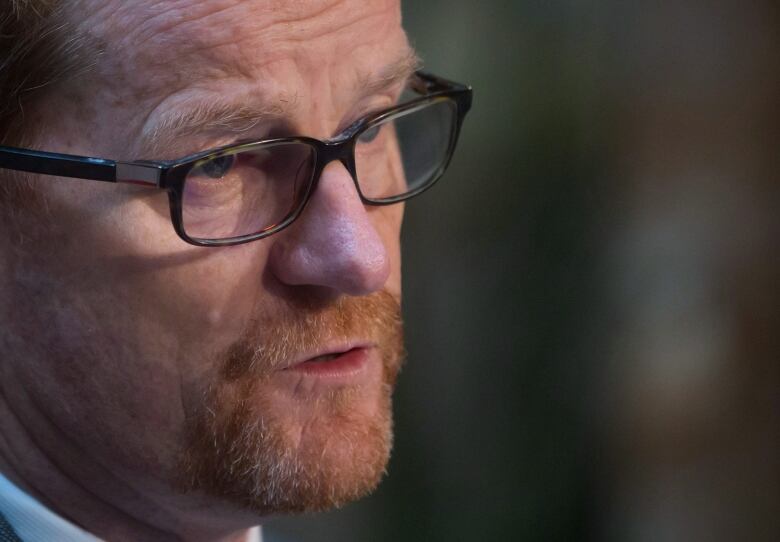Health minister talking 'priorities' but provinces expected to press on funding
Liberals' sunny ways will be put to the test at meeting of health ministers later this week

Justin Trudeau has promised a new era, one in which provinces and territories get a lot more say over federal decisions and money than they have in years past. An era marked by collaboration and sunny ways — and lots of meetings.
Now his health minister, Jane Philpott, will try to put that into practice as she sits down Thursday in Vancouver with her provincial and territorial peers. But she may find friction over just what should be discussed.
"My sense actually, in talking to my counterparts, is that there's a great appetite in not distracting ourselves too much about the financial conversations," Philpott told CBC News, "but at this stage, obviously, developing a good working relationship together and talking about what our priorities are going to be."
- 5 things to know about the Liberal vow to establish a new health accord
- Prescription drug cost-saving plan to include feds
However, money is exactly what some provinces are hungry to discuss. (Provincial and territorial ministers meet together first, on Wednesday.)
Quebec's Health Minister Gaétan Barette said in a statement that he hopes to hear Philpott's views on "the orientations she wishes to give to the discussions about the health transfers, the actual deal expiring in 2017."
In order to address sustainability issues of the health care, we can't just be pouring more money into the system and hoping for a better result.- Dustin Duncan, Saskatchewan's minister of health
Right now, health transfers to the provinces and territories grow at a rate of six per cent each year, but that deal is set to end. Starting in 2017-18, a new formula established by the former Conservative government would see the transfers tied to economic growth, but not fall below three per cent per year.
That money goes towards funding each region's health system — everything from hiring doctors and nurses to buying new equipment.
During the last election, the Liberals promised they would negotiate a new accord with a long-term agreement on funding.
Dollars tied to results?
Philpott said before focusing on the amount of money at play, she wants to talk about how that money is spent: namely, finding agreement on priorities in health care and examining how the system can be improved.
It's an idea Saskatchewan's minister sounds willing to discuss.
"In order to address sustainability issues of the health care, we can't just be pouring more money into the system and hoping for a better result. That certainly has been our experience here in Saskatchewan," Dustin Duncan told reporters Friday.
Does that mean getting provinces to agree on how the money should be spent — in essence, a "strings attached" scenario?
Philpott seems to be exploring that idea when it comes to another election promise: providing $3 billion over four years for home care, including in-home caregivers, financial supports for family care and better palliative care.

"I will be having a very frank conversation with my provincial and territorial colleagues about whether, in fact, we would like to make a decision about certain targets that we would like to reach and whether or not it's appropriate for some of the funding to be tied to those outcomes," said Philpott.
British Columbia's health minister, Terry Lake, has also pushed the idea of tying funding to demographics, meaning potentially more money for provinces and territories with more seniors.
He said he realizes that might be a tough sell for the overall health transfer, but suggested it could work for new projects like home care.
"The political issue is a difficult one when you've got a formula that favours a province like Alberta by a billion dollars a year, and penalizes a province like B.C. in the order of $200 million a year," said Lake. "You've got a political problem because now you're going to say to a province that is having fiscal challenges, 'We want to reduce the amount we're giving you for health care.'"
"I understand that political reality, which is why one of the approaches would be to look at targeted programs that Ottawa is coming on board with, perhaps like the home care program, and make sure that reflects the demographics of each population."
Ballooning drug costs
Pharmaceutical costs are also expected to be up for discussion.
The federal government announced Tuesday it would join with provinces and territories in the bulk purchase of pharmaceuticals, a move aimed at making medication cheaper for Canadians.
But some would like to see the federal government go even further and set up a nationally-funded program to cover the costs of medication.
On Monday, B.C. Premier Christy Clark called pharmacare "a really good idea for Canada" and suggested "perhaps the time is now."
The ministers will also discuss a new law in the works to make doctor-assisted dying legal in Canada. Last February, the Supreme Court of Canada said it was unconstitutional for the federal government to ban the practice. Ottawa has until June to come up with a new law.
While the federal government is busy drafting the new law, it will be up to the provinces to actually manage the practice. Right now, Quebec is the only province where medical aid in dying is legal.
Legalizing marijuana is likely to come up too. It's another Liberal campaign promise with implications for the provinces and territories. Ottawa has promised to create a task force to talk about issues like where pot would be sold, who would grow it and how it would be distributed.

